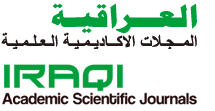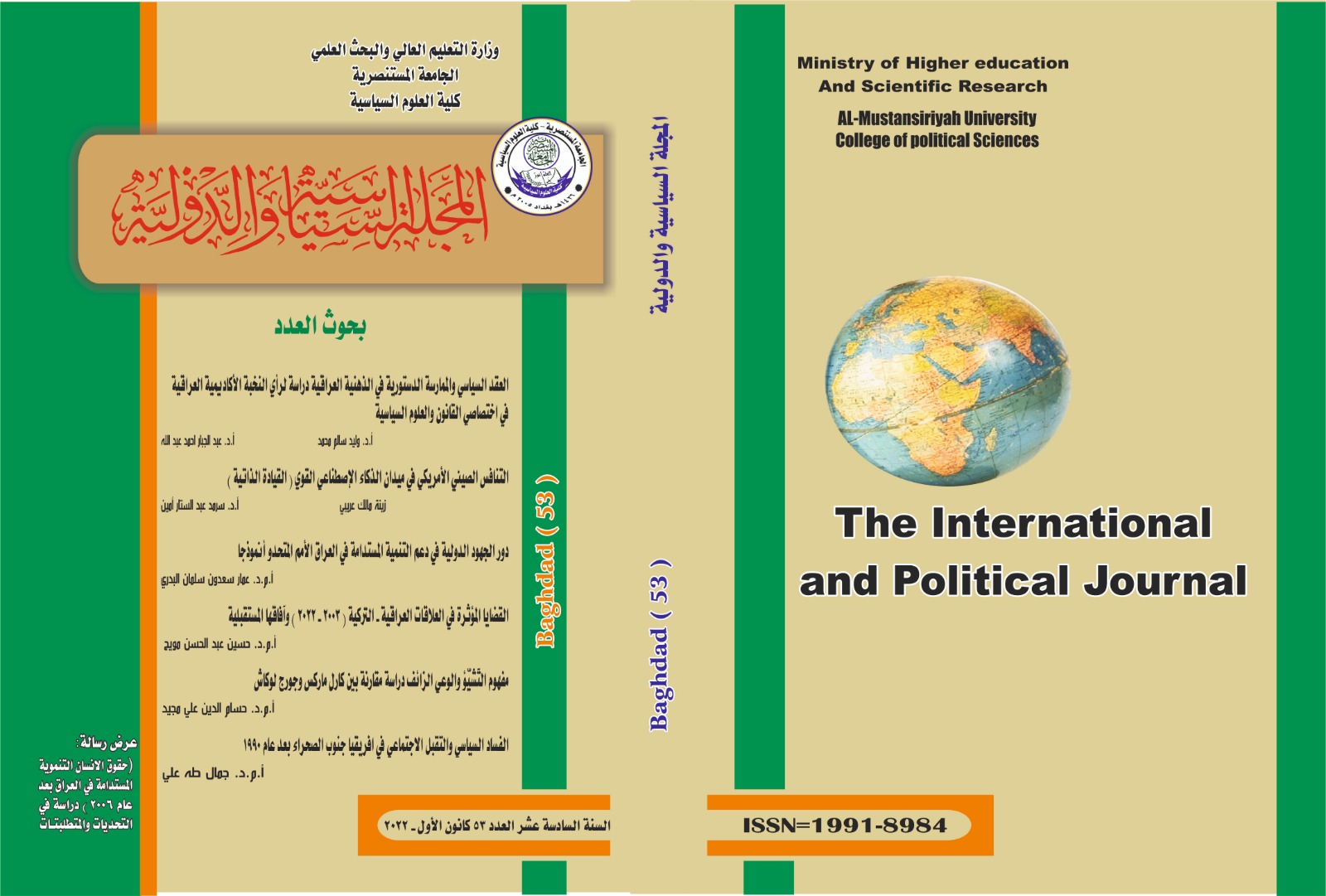The modern state in the thought of Mustafa Kemal Ataturk
the international and political journal
Keywords:
Modern State, National Independence, National Unity, Ataturk, Turkey.Abstract
The day of the end of Ottoman rule in 1923 was a turning point in the history of the Turkish nation, as this event heralded the beginning of the establishment of the modern Turkish Republic. The Turks attribute the founding of this republic to the military leader Mustafa Kemal, who was nicknamed ‘Ataturk’, as he was a spiritual father and national symbol for many Turks.
Mustafa Kemal Ataturk rose to prominence when the Ottoman authorities assigned him to lead a number of their military campaigns in Tripoli, Aleppo, Antioch and elsewhere, as he demonstrated military experience and acumen in leading these campaigns. He also participated in World War I, emerging from it with the rank of general.
The most prominent stations in Mustafa Kemal Ataturk’s career were his participation in the wars of independence and liberation, which resulted in the liberation of large parts of Turkish lands that had been occupied by the British and French during World War I.
Ataturk led an armed resistance movement in 1919 and was able to achieve a major military achievement represented by the liberation of all Turkish lands in the summer of 1922. After the end of the war of liberation and independence, the Civil Council, which included representatives of the popular forces, signed an agreement with the great powers known as the famous Lausanne Treaty in 1923, which recognized Mustafa Kemal Ataturk as the leader of the country. After the liberation, the struggle began over the form of the political system, as Ataturk decided to establish a party known as the Republican People's Party and hold legislative elections. The elections resulted in the victory of the Republican People's Party and the selection of Ataturk as President of the Republic. Ataturk was able to extend his control over the executive institutions while maintaining the majority within the legislative institution. He worked hard to issue new constitutions that strengthened the position of the new Turkish National Assembly and its intellectual orientations, which were the prevailing doctrine of the political system, namely (republican, nationalist, popular, statist, revolutionary, secular). Major changes also occurred in the form of the state and its political and social system.
Additional Files
Published
How to Cite
Issue
Section
License

This work is licensed under a Creative Commons Attribution 4.0 International License.
Journal Policies
All articles published in the International and Political Journal are licensed under a Creative Commons Attribution 4.0 International License. This means that the Authors can:
The journal allows reuse and remixing of content in accordance with a Creative Commons license.
Copy and redistribute the material in any medium or format.
Policy of publishing in The International and Political Journal
The journal is committed to the ethics of scientific publishing, and according to the publication ethics report of the journal.
The decision to publish is based on the value of the scientific research, to what extent it meets the conditions of publication approved, the declared policy of the journal, and its specialty.
It is based on the principles of the scientific honesty, and originality of research submitted for publication. It deals with the names of reviewers and their reports with great confidentiality.
The opinions published in the journal reflect the views of the authors, and not necessarily reflect the opinion of the editorial board.
The journal does not adhere to the publication of whatever comes to it. The time and place of publication are subject to technical considerations adopted in the editorial plan of the journal.
The journal does not abide to return the research papers to their owners whether accepted for publication or not.
The researcher is to be provided with the acceptance of publication within about 24 WEEKS. As for publication, the editorial board reserves its right in priority of publishing. The arrangement of the research papers in the same issue is subject to technical standards.
Diversify of publishing papers from solid universities and scientific centers from inside and outside Iraq is preferable.
The journal maintains hard copies and electronic archive of the published issues in addition to the publication of the research papers.
The journal also publishes the issues electronically through the website of the journal, and the official website of the Iraqi academic journals, and makes it possible to download. Thus, documenting the intellectual property of the research papers and publishing them internationally is achieved.
Terms of publication may be modified when necessary with no previous notice.
The researcher obtains a copy of his research paper. If he wishes to buy acopy of the journal, the volume costs ID 10000 from inside Iraq and $8from the outside.
The Editorial Board considers that the researcher who submits his research paper for publication in the journal has already read the terms and conditions of publication and agreed on them.
The journal publishes the research papers of the postgraduate students in special issues for this purpose.
Stages of editing and publishing:
The researcher undertakes that his research has never been published before, and has not been submitted for publication to other sides until the end of the evaluation procedures and the acceptance of publication in the journal.
The research papers submitted for publication are to subjected for preliminary examination by the editorial board to determine their suitability for the journal specialization, its policy and the safety of scientific research procedures, and then to indicate its eligibility for scientific evaluation. The editorial board may apologize for accepting the research all together or require the researcher to amend it in accordance with the journal policy before sending it to editors.
After conducting the scientific evaluation, the research paper returns back to the researcher to make the required amendments within a maximum of two weeks.
A copy of the final research paper is to be submitted to the secretariat of the journal a hard copy and a soft copy on a CD, in both Word and PDF format. The researcher is fully responsible for the typing and linguistic mistakes after submitting the full research paper on a CD.
Plagiarism checker
All research papers are subjected to Turnitin program to uncover plagiarism before being sent to scientific evaluation. The researcher undertakes a written pledge to take the legal and moral responsibility, in the event of the emergence of plagiarism or taking from the efforts of other researchers, without a reference to them. The journal uses appropriate anti-plagiarism software, such as Turnitin to check for plagiarism.
Dealing with Allegations of Research Misconduct
The Journal shall take reasonable and serious steps to identify and prevent the publication of papers where research misconduct has occurred, including plagiarism, citation manipulation, and data falsification/fabrication.
Scientific Evaluation:
Scientific evaluation strengthens the research paper submitted to the journal and helps to take the appropriate decision by the editorial board to publish it. It also benefits the researchers to improve and correct their research papers.
The research paper is sent to three evaluators in the same specialty to evaluate












